Orthotic insoles for flat feet aim to support the arches of the feet, limit overpronation, cushion the feet and make the feet overall more comfortable.
Shop online from our most popular orthotics for flat feet
No products found
Use fewer filters or remove all
Podiatrist Review
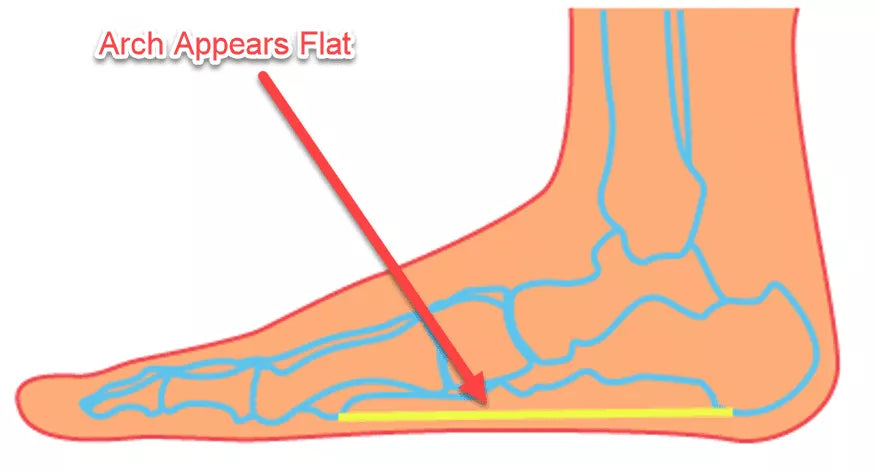
The foot often over pronates and gives the appearance of a flat foot. When the arches drop they are referred to as fallen arches.
How to know if you have flat feet
Flat feet have the characteristic appearance of a lowered medial (inside of the foot) arch. Flat feet or flexible flat feet are usually associated with a foot that is not as efficient for walking. Because walking is such a repetitive activity (over 10,000 steps per day), small amounts of arch collapse can lead to very painful conditions. The lack of efficiency of walking on flat feet and fallen arches can lead to heel pain, arch pain, plantar fasciitis, overpronation, and shin splints. It can also irritate almost every other aspect of the foot.
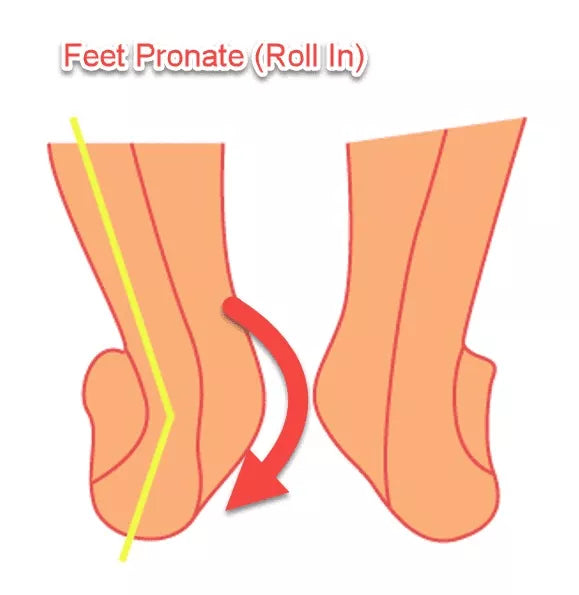
Over pronation can cause foot pain
What causes flat feet?
A flat foot or a flexible flat foot is caused when the arch height of the foot collapses and falls. If we look at a flat foot from behind we often see that the foot has also over pronated (rolled towards the midline of the body). When the foot pronates the arch height drops and we see the characteristic appearance of a flat foot.
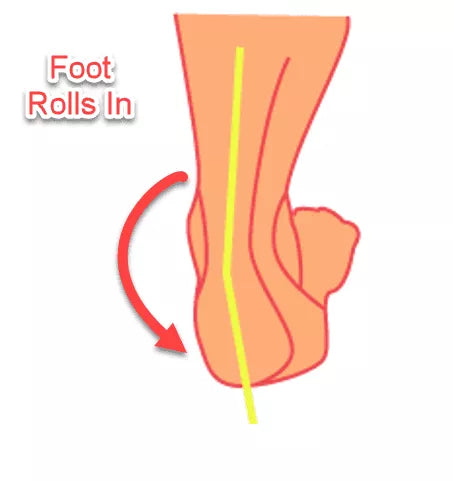
Support is needed if the foot rolls in too far
Why are flat feet bad?
When we try to walk on a flat foot it is a very inefficient lever to walk on. When we have fallen arches the joints of the fee are not aligned correctly and wear unevenly. The ligaments that connect the joints together and form the arch, become overworked and over time these can become inflamed and cause foot pain.
Why is Overpronation Bad?
Overpronation is when the foot rolls towards the midline of the body. Overpronation is a problem because it is linked to arch collapse and flat feet. When our foot overpronates, the heel rolls towards the midline of the body, the arches drop and there is a greater load placed on the joints and ligaments of the arch.
To maintain the arch height and a better mechanical position for the foot, the muscles of the feet and legs become active to control and reverse the overpronation.
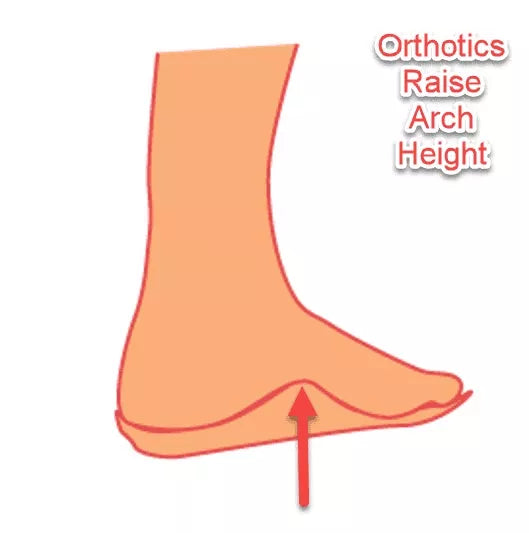
Use an orthotic for support
What can orthotic insoles do for flat feet?
With arch support, an orthotic insole will keep the arch height high and limit the wear and tear effect overpronation has on the feet. Orthotics help to balance the foot into a position of not rolled in and not rolled out. All round foot support and cushioning are the best approaches for the support of flat feet.
Orthotic insoles for flat feet best features
The best insoles for flat feet will have all of the features below and fit comfortably in a good supportive shoe.
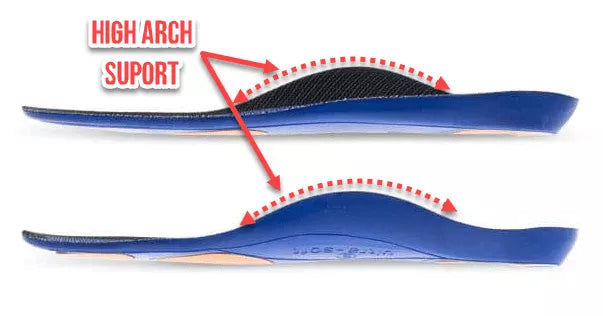
High arch support works best
Arch support insoles for flat feet
Arch support insoles help to decrease the total amount of overpronation and also slow the speed of overpronation and arch collapse.
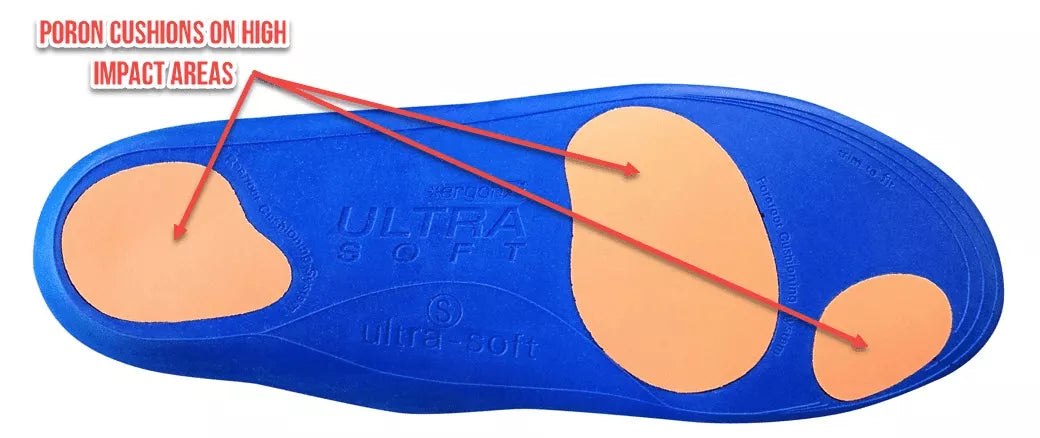
Use a soft arch support
Cushioning adds to the comfort and slows the speed of arch collapse through shock absorption
When we add cushioning to flat feet it increases the comfort and slows the rate the forces are applied to the feet. This reduced the overall amount of pronation and improves foot position.

Lateral arch support is an important feature
Lateral Arch support insoles for flat feet
Support for the lateral arch of the foot is important as it will enhance stability in the feet and improve cushioning. The lateral arch support will guide the foot into a normal position as the heel strikes the ground. This can lead to less reactive pronation and a better foot position.
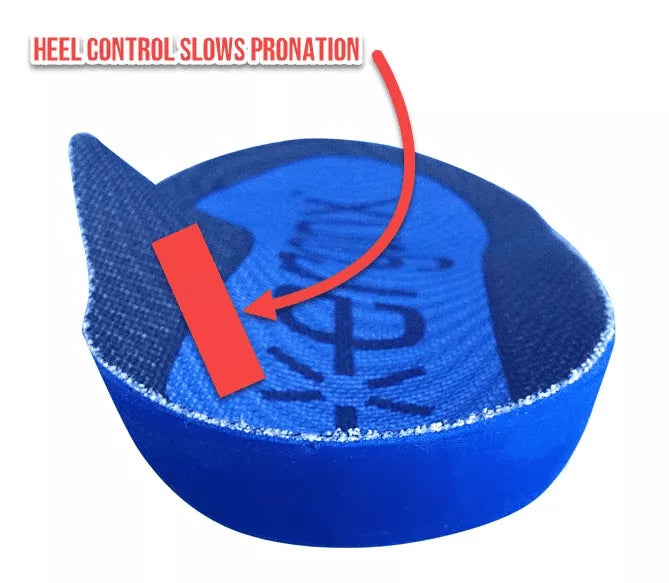
Slow pronation with heel control
Heel control as the foot strikes the ground
By controlling the heel at heel strike through maintaining the calcaneal inclination angle (marked below) we can help to correct and slow the rate of pronation. This reduces the forces that area applied to the feet during walking.
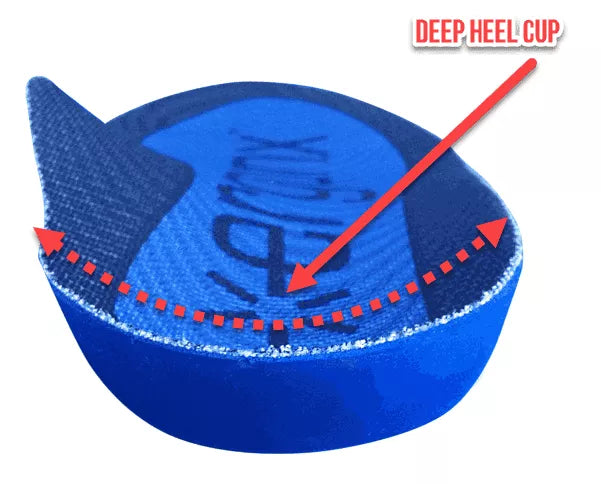
Support the heel to reduce impact
Deep anatomical heel cup – further enhances cushioning
The foot has a fatty pad under the heel that helps with shock absorption and cushioning. If we can keep the fatty pad contained under the heel it will enhance the shock absorption capacity of the foot. This helps to slow the forces applied to the feet and improve the ovall foot position and comfort.
Choosing the best orthotic insoles for flat feet
When choosing the best orthotic insoles forflat feet it is important to consider not only the arch support features of your orthotics, but also the cushioning, shock absorption, fit into shoes, and comfort.
The more of the above features you can include in your orthotics, the better your flat feet will perform.

About the Author
Kent Elliot (Podiatrist). B App. Sc. Pod (Hons), B.Sc(HMS). M.A. Pod. A
Kent graduated from the University of Queensland with a Bachelor of Science (majoring in Human Movement Studies) and from Podiatry at The Queensland University of Technology (QUT). During this time Kent took a special interest in exercise and conditioning training, orthotics, and plantar fasciitis. Kent has a personal interest in and has participated in many sports including rugby, athletics, boxing, tennis, and running.
